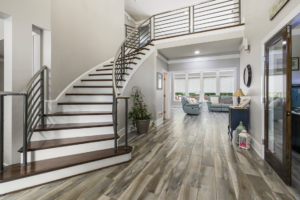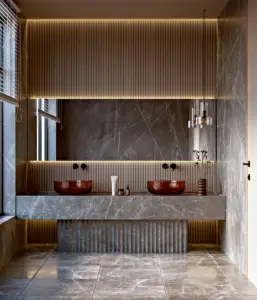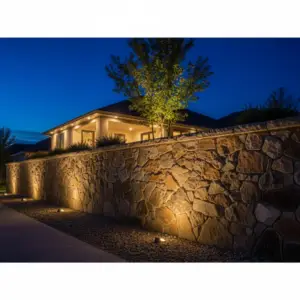By George House/29,Oct,2025

(Source )
Choosing the right windows can shape the comfort and character of your home for years. Whether you prefer a sleek, modern look or a classic, warm appeal, the choice between aluminum windows vs wooden windows often stands at the center of every homeowner’s dilemma.
Both have distinct qualities, and your decision can impact everything from energy bills to long-term upkeep. According to the U.S. Department of Energy, windows can account for up to 30% of residential heating and cooling energy loss. Understanding what suits your lifestyle, design, and budget will help make your space both practical and stylish.
Understanding the Appeal of Aluminum and Wooden Windows

(Source)
The choice between aluminum window frames and wooden window frames often reflects personal style and home architecture. Both options have evolved over the years. Modern window designs have made aluminum windows vs wooden windows far more efficient and stylish than before. Let’s break down what each option brings to the table.
Aesthetic Differences Between Aluminum and Wooden Windows
Aluminum window frames are often chosen for their slim structure and clean lines that complement modern window designs. Their neutral metallic finish adds a contemporary touch that fits both residential and commercial spaces.
On the other hand, wooden window frames bring warmth and texture to interiors. Their natural grain patterns and color variations add depth to living rooms, bedrooms, and kitchens. Wood complements rustic, vintage, or traditional settings beautifully.
The aesthetic preference often depends on your home’s architecture, but many homeowners prefer blending both materials for a balanced and timeless appeal.
Energy Efficiency and Insulation Capabilities
When comparing aluminum windows vs wooden windows, insulation often tops the list of deciding factors. Wooden window frames provide excellent natural insulation, keeping interiors warmer in winter and cooler in summer.
Aluminum window frames, though less naturally insulating, have improved with thermal breaks that prevent heat transfer. This makes modern aluminum windows much more energy-efficient than older versions. Whether you live in a colder region or a warmer one, energy efficiency significantly impacts comfort and monthly expenses.
Durability and Longevity Comparison
Durability can determine how long your windows last before repairs or replacements. Aluminum window frames are known for their strength and resistance to corrosion, making them ideal for coastal or humid areas.
They don’t warp, swell, or crack under extreme temperatures. Wooden window frames, while durable, require consistent care to prevent moisture damage and rot. The difference often lies in how well they’re maintained over time.
Maintenance Needs and Long-Term Care
Maintenance is a dealbreaker for many homeowners choosing between aluminum windows vs wooden windows. Aluminum window frames demand minimal effort. They usually need occasional cleaning to keep dust and grime away.
On the other hand, wooden window frames require periodic sanding, sealing, and repainting to maintain their look and prevent weather damage. Maintenance of wooden windows requires regular upkeep to ensure their charm stays intact while keeping performance steady. It’s all about commitment and how much time you’re willing to invest.
Cost Considerations and Budgeting
Cost often guides homeowners when choosing materials for home renovation, materials as windows. Aluminum window frames generally cost less upfront due to their simpler manufacturing process.
However, wooden window frames tend to have a higher initial price because of their natural material and craftsmanship. An important thing to keep in mind is that high-quality wood windows can cost 30% to 40% more than aluminum alternatives.
Despite the higher cost, many homeowners prefer wood for its longevity and natural appeal. Aluminum may save money initially, but wood often adds more to resale value, especially in traditional or historic homes.
Factors to Consider Before Choosing

(Source)
Each material offers distinct advantages and small trade-offs. Aluminum window frames excel in durability and cost-efficiency, while wooden window frames shine in insulation and aesthetic warmth. Both can fit perfectly into modern window designs, depending on how you balance performance and appearance. Let’s explore these influencing factors further to help narrow your decision.
Climate and Environmental Impact
Your environment plays a big role in how your windows perform. Wooden window frames thrive in dry climates but can struggle with humidity. Aluminum window frames, however, resist moisture and rust well.
For eco-conscious homeowners, eco-friendly home improvements like sustainably sourced wood or recyclable aluminum can reduce environmental impact. According to data from the U.S. Forest Service (fs.fed.us), sustainably managed forests provide wood that stores carbon for decades.
Aluminum, on the other hand, can be 100% recycled, making it an equally green choice for those prioritizing environmental responsibility in their home renovation materials.
Design Flexibility and Customization Options
Both aluminum window frames and wooden window frames can adapt to different modern window designs. Aluminum allows for slimmer frames and larger glass panels that suit minimalist and contemporary homes.
Wood offers greater flexibility with carving and painting, perfect for customized finishes. You can even mix both with aluminum exteriors for durability and wooden interiors for warmth.
According to research by the American Institute of Architects (AIA.org), homes with blended material windows report higher satisfaction scores for design versatility. Choosing your finish and structure helps you match style with practicality while maintaining your home’s personality.
Soundproofing and Comfort Levels
Peaceful interiors depend on insulation, and wooden window frames often outperform aluminum in soundproofing. Their dense composition blocks external noise effectively, making them ideal for homes in busy areas.
However, newer aluminum window frames feature insulated cores that reduce noise transmission significantly. Whether you value quiet living or energy savings, choosing energy-efficient windows with proper sealing ensures both comfort and peace inside your home.
Aesthetic Compatibility with Home Styles
Each home has its own story, and windows shape how that story looks. Wooden window frames complement older homes, cottages, or spaces that rely on organic finishes. Their warmth pairs beautifully with brick or stone exteriors.
Aluminum window frames match modern architecture with sleek symmetry and sharp finishes. Both materials can elevate appearance if paired thoughtfully with existing home renovation materials and color schemes.
Conclusion: Which One To Choose
Both aluminum windows vs wooden windows have unique strengths that can redefine how your home feels and functions. Your best choice depends on lifestyle, climate, and design goals. Either way, thoughtful selection ensures beauty and efficiency in equal measure.
We hope you have a clear idea from this article what both of the materials have to offer. It will allow you to choose the best one according to your needs and preferences.
Enhance your living spaces with high-quality aluminum window frames or wooden window frames from George Group. Their precision, performance, and variety of modern window designs bring elegance and value to every home upgrade.





